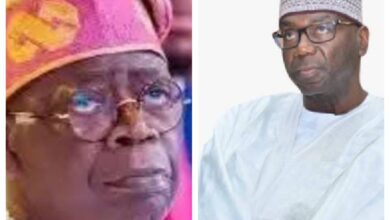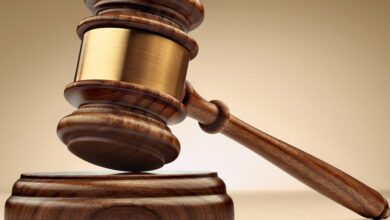The vital link between investigative journalism and good governance

By Femi Falana
Investigative journalism has been defined as “a form of journalism in which reporters deeply investigate a single topic of interest, such as serious crimes, political corruption, or corporate wrongdoing. An investigative journalist may spend months or years researching and preparing a report”. Investigative journalism is also said to mean “the unveiling of matters that are concealed either deliberately by someone in a position of power, or accidentally, behind a chaotic mass of facts and circumstances – and the analysis and exposure of all relevant facts to the public. In this way, investigative journalism crucially contributes to freedom of expression and media development, which are at the heart of UNESCO’s mandate”.
There are three types of investigative journalism and these categories may overlap.
- Uncover scandals that are aimed at detecting violations of laws, rules or norms of decency, by organisations or individuals.
- Review policies or functioning of government, businesses and other organisations.
- Draw attention to social, economic, political and cultural trends, which are aimed at detecting changes in society.
Good governance has 8 major characteristics. It is participatory, consensus-oriented, accountable, transparent, responsive, effective and efficient, equitable and inclusive and follows the rule of law. It assures that corruption is minimized, the views of minorities are taken into account and that the voices of the most vulnerable in society are heard in decision-making. It is also responsive to the present and future needs of society. Right from the colonial era, Nigerian journalists have always been at the forefront of the struggle for good governance under very hostile conditions.
Tenets of good governance in Nigeria
For the purpose of this discourse, it is submitted that the fundamental objectives enshrined in chapter two of the Nigerian constitution contain the tenets of good governance. Since the republic is said to be a state based on the principles of democracy and social justice the security and welfare of the people shall be the primary purpose of government. To promote the welfare of the people the state is obligated to secure full residence rights for every citizen and national integration in all parts of the country, ensure the control of the national economy in such manner as to secure the maximum welfare, freedom and happiness of every citizen and the distribution of the material resources of the nation to serve the common good.
In furtherance of the social order, the state shall direct its policy towards ensuring employment opportunities for all citizens, adequate medical and health facilities for all persons, equal pay for equal work, protection of children, young persons and the aged, public assistance in deserving cases, provisions of adequate shelter, suitable and adequate food, a reasonable national minimum living wage, old age care and provisions, sick benefits and welfare of the disabled. To eradicate illiteracy and enhance national development there shall be free education at all levels including free adult literacy programme.
It is indisputable that the aforesaid objectives cannot be achieved by political parties whose manifestoes and programmes are based on market fundamentalism. On that ground, every political party or candidate should therefore be made to disclose to the electorate, through the media, how they intend to achieve the fundamental objectives. To promote public accountability the media should ensure that the assets and liabilities of all elected leaders are declared and made available to the electorate. Shehu Sani revealed that the salary of a senator is N750,000 and N13 million allowance per month. The senate president, Ahmad Lawan, has just disclosed that the N13 million is not for a month but a whole session!
Duty of the media to promote public accountability
The constitution has imposed a duty on the press, radio, television and other agencies of the mass media “to uphold the fundamental objectives contained in Chapter two of the constitution and uphold the responsibility and accountability of the government to the people”. In discharging the onerous duty the press is required to place public interests over and above commercial considerations. To underscore the significance of the fundamental objectives of the programme, as well as the aims and objectives of a political party, shall conform to the provisions of chapter two of the constitution. Before the assumption of office, every elected or appointed person shall declare their assets and pledge to observe and implement the provisions of the fundamental objectives and directive principles of state policy. In reporting the electioneering campaigns the media is required to confirm the commitment of political parties and candidates to implement the fundamental objectives.
However, in order to continue to promote opacity in public affairs, the 36 state governments except for the Ekiti state government, have refused to adopt the freedom of information act. The court of appeal that since the freedom of information act is a federal enactment it is not applicable throughout the Federal Republic of Nigeria. With respect, the court did not apply the case of Attorney-General of Ondo v Attorney-General of the Federation the supreme court held that “going by these definitions the directive under section 15 subsection (5) of the constitution will apply to all the three tiers of government, namely, the federal government, state government and local government. In that cases, the power to legislate in order to prohibit corrupt practices and abuse of power is concurrent and can be exercised by the federal and state governments by virtue of the provisions of section 4 subsections (2), (4)(b), and (7)(c) of the constitution”.
Since the national assembly enacted the freedom of information act in order to promote public accountability and transparency in accordance with section 22 of the constitution which is part of the fundamental objectives and directive principles of state policy it is of general application in Nigeria. Alternatively, access to information is guaranteed by section 39 (1) of the constitution which provides that “every person shall be entitled to freedom of expression, including the freedom to hold opinions and to receive and impart ideas and information without interference. In addition, Article 9 (1) of the African Charter on Human and Peoples Rights guarantees access to information. It states that “Every individual shall have the right to receive information”.
Urgent need to decriminalise libel laws
Nigeria has continued to apply colonial anti-media laws such as criminal libel and sedition as well as the Cybercrimes Act and the National Broadcasting Act and code to deal ruthlessly with media houses and journalists. But in realising that public accountability cannot be promoted under authoritarian rule, a number of African countries have decriminalized the law of defamation. Three among the member states of the Economic Community of West African States (ECOWAS) have freed the media from the shackles of colonialism. Ghana paved the way on July 27, 2001, when her parliament unanimously repealed the Criminal Libel and Seditious Laws, which had been used to incarcerate a number of journalists in the past. The repeal follows the passage of the Criminal Code (Repeal of the Criminal and Seditious Laws – Amendment Bill) Act 2001. Liberia and Sierra Leone have since followed suit in 2018 and 2020 respectively.
On 14 February 2018, the court of justice of Economic Community of West African States (ECOWAS) issued a judgment in Federation of Journalists v The Gambia that found most Gambian media laws violated freedom of expression. The court asked the government to repeal or amend all criminal laws on libel, sedition, and false news in line with Gambia’s obligations under international human rights law.
The 2023 general elections
Even though the INEC has not officially authorized the commencement of campaigns for the 2023 general election, politicians have been seeking the support of the electorate in the media, by way of sponsored articles and programmes. But in selling their programmes some of the political parties have engaged in mudslinging and libellous publications. Politicians who are campaigning for votes should be made to proffer solutions to the crisis of underdevelopment plaguing the country. The media should not allow reactionary politicians to divert attention from the hydra-headed problems of the comatose economy, unemployment, insecurity, infrastructural decay, looting of the treasury, armed robbery, kidnapping, terrorism etc. The EFCC has just disclosed that a serving governor in the north-central zone stole N60 billion from the treasury.
However, the majority of citizens are excluded from the dividends of democracy due to the implementation of neo-liberal policies dictated by the International Monetary Fund supervising the national economy of each of the member states. Hence, access to justice and economic prosperity remain a tantalizing reality in Nigeria. My submission is that in the midst of grinding poverty in the region, the rule of law and governance constitute prime factors in economic development the economy has to be freed from imperialist control and controlled by the people in line with Articles 21(1) and 5 of the African Charter on Human and Peoples’ Rights which provide that “All peoples shall freely dispose of their wealth and natural resources. This right shall be exercised in the exclusive interest of the people. In no case shall a people be deprived of it.”
Contrary to the legal obligation of the state to promote prosperity through the control of natural resources the national economy of Nigeria is controlled by imperialism and its local lackeys. For instance, the resolution of the ECOWAS to have a common currency has been frustrated by France. Through the imposition of the Structural Adjustment Programme on African states in the 1980s and 1990s, the economy collapsed while poverty increased phenomenally. Even though the World Bank apologized for the imposition of the programme, the IMF has insisted on the implementation of neo-liberal policies by each of the member state of the African Union. In urging Africans to take control of their political and economic destiny Nkrumah had observed that:
“Africa is a paradox that illustrates and highlights neo-colonialism. Her earth is rich, yet the products that come from above and below the soil continues to enrich not Africans predominantly but groups and individuals who operate to Africa’s impoverishment ”.
Upon the adoption of the CNG policy by the Federal Government the Central Bank of Nigeria announced that the sum of N250 billion had been earmarked for the conversion of vehicles from PMS to CNG. But for reasons best known to the Authorities, the CNG initiative has been abandoned. However, since the Buhari administration claims to operate under the rule of law it is pertinent to draw the attention of the Federal Government to the case of Bamidele Aturu v Minister of Petroleum Resources where the Federal High Court declared the deregulation of petroleum products illegal, null and void pursuant to the combined effect of section 6 of the Petroleum Act and section 4 of the Price Control Act.
Following the Covid 19 pandemic the Federal Government took a loan of $3.4 billion from the International Monetary Fund. The conditionalities attached to the loan include the devaluation of the Naira and removal of the so called fuel subsidy and increase in electricity tariff and fuel price. If the Federal Government goes ahead with the dangerous plan to remove the so called fuel subsidy or under recovery the People’s Alternative Political Movement has resolved to mobilize the Nigerian people to reject the re-colonization of the country by imperialism. In the interim, I challenge Nigerian journalists to expose the monumental fraud that has characterized the importation of fuel by the NNPC. More so, that the leadership of the Nigerian Customs Board has accused the NNPC of involvement in the smuggling of fuel imported fuel out of the country!
I thank you for your kind attention and patience.
*Being excerpts of the keynote address delivered by Femi Falana (SAN) at the Cable Colloquium held in Lagos on December 15, 2021





